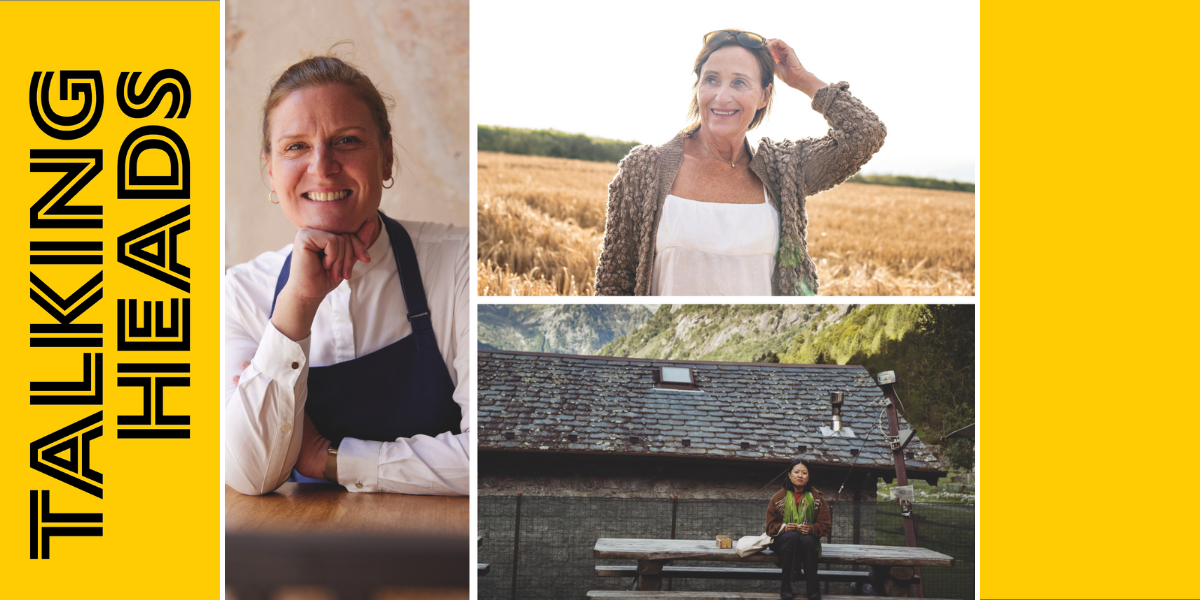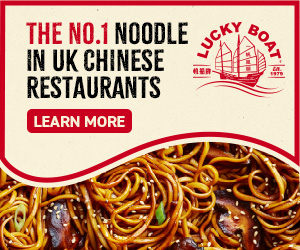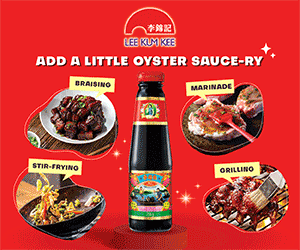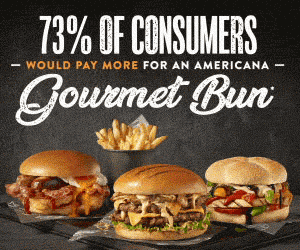Talking Heads: Levelling the playing field

The theme for International Women’s Day – which falls on 8 March this year – is #AccelerateAction. As we look ahead to the annual event dedicated to ladies worldwide, we shine a light on three of hospitality’s most prominent women who are not only empowered, but committed to empowering others
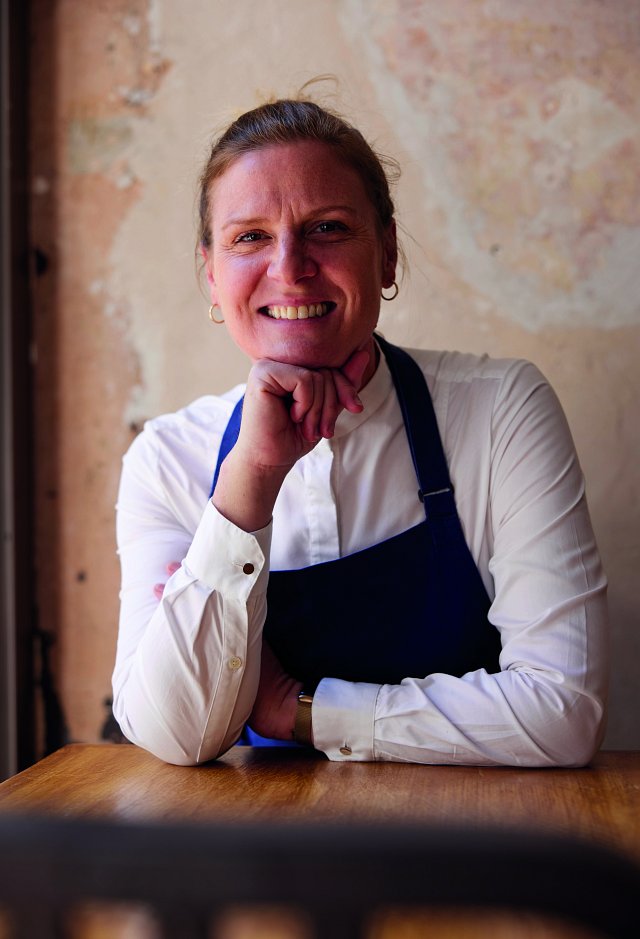
Chantelle Nicholson
Chef-owner, Apricity
Business profile: Apricity, a restaurant from award-winning chef Chantelle Nicholson, is located on Duke Street in Mayfair. It celebrates conscious cooking and joyful dining, and has held a Michelin Green star since 2023. Nicholson has worked with head chef Eve Seemann to create dishes centred on hyper-seasonal, sustainable produce from small-scale farmers and locally foraged ingredients, with a low-waste approach in the kitchen.
Dine Out (DO): How does your business embrace and promote female empowerment?
Chantelle Nicholson (CN): We embrace and support all team members at Apricity. We have a large percentage of females in our team – I think this is partly due to the fact we are a female-led business with myself and Eve, our head chef.
DO: What strategies or mindset shifts have you found most effective in overcoming biases as a female leader in hospitality?
CN: I think it’s important to not just accept things as the norm and try to challenge them in a respectful way. It’s also important to understand that sometimes bias does not come from a bad place; it comes from habit, and it’s the habit that needs to change. I think promoting more female leaders is important and I still don’t think it happens enough.
DO: How can the industry address cultural issues that contribute to gender inequality?
CN: The industry could be more supportive and encouraging when it comes to diversity. I think the media have a huge part to play too and should make some commitments towards looking further outwards. Promoting and showcasing diversity would be a good way to start.
DO: What are your hopes for the future of gender diversity in hospitality?
CN: I’m hopeful that there will be more equality and diversity moving forward and issues surrounding the lack of them are addressed and rectified.
DO: What does International Women’s Day mean to you?
CN: It symbolises the need to celebrate all of the women doing amazing things. It’s an opportunity to talk more about the need to diversify and offer support.
DO: What women inspire you and why?
CN: There are many women who inspire me on a daily basis, namely the ones who think creatively about how to solve issues and problems wider than just within their own circles.
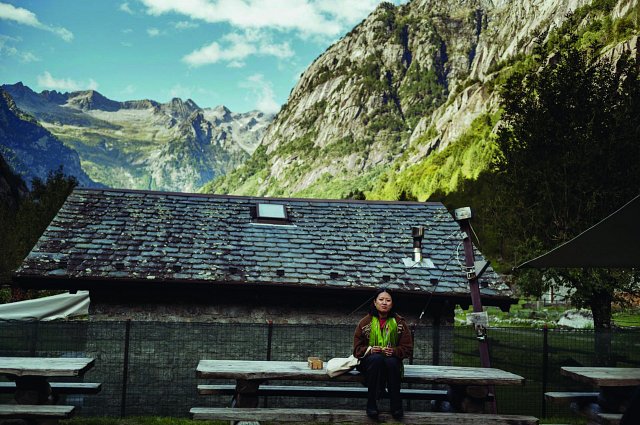
Carmen Mac
Head of creative, brand and communications, Super 8 Restaurants
Business profile: Carmen leads on all things creative at renowned restaurant group Super 8, establishing the creative campaigns, design, brand development and events programming for Mountain, Brat and Brat Climpson’s Arch – which have become some of London’s most sought-after dining spots.
DO: How does your business embrace and promote female empowerment?
Carmen Mac (CM): Super 8 has an extraordinary culture where women hold senior roles, creating visible and empowering pathways for the next generation. Collaboration and mentorship are part of our DNA, and there is a focus on fostering an environment where women can thrive at entry level. It’s all about representation that feels authentic, to inspire team members to see what’s possible and allow them to contribute their best.
DO: What strategies or mindset shifts have you found most effective in overcoming biases as a female leader in hospitality?
CM: I always make sure I have confidence in my vision. Learning to trust my instincts and speak up when needed has been a game changer. I also ensure I build allies within the industry. Encouraging inclusive conversations and holding space for diverse perspectives has helped us challenge biases, and having a community is so important to enact change.
Finally – and importantly – refusing to apologise for ambition. We must change the narrative around what leadership can and should look like in hospitality and have the confidence to know we all deserve to be heard.
DO: How can the industry address cultural issues that contribute to gender inequality?
CM: Businesses need to normalise flexibility. Hospitality often demands long hours, but when a culture is created where work-life balance is prioritised, doors can then be opened to more women.
The industry also needs to be more proactive in calling out microaggressions. Ensuring a zero-tolerance approach to sexism, no matter how subtle, is critical for change. Another way to address these cultural issues in the industry is by elevating role models. Showcasing the diverse female leaders who have succeeded creates aspirational pathways for others and, in turn, aids towards a more gender-equal society.
DO: What are your hopes for the future of gender diversity in hospitality?
CM: One of my hopes is a future where diversity at every level – including kitchens, front-of-house and beyond – is the norm, not the exception.
I also want to see more women not only leading, but defining the culture and ethos of the spaces they run, as well as a greater, industry-wide understanding that diverse teams produce more dynamic, creative and successful businesses.
DO: What does International Women’s Day mean to you?
CM: Every day is our day.
DO: What women inspire you and why?
CM: My peers and team; the women I work with every day at Super 8. Each one is inspiring in their resilience, creativity and ability to have an impact.
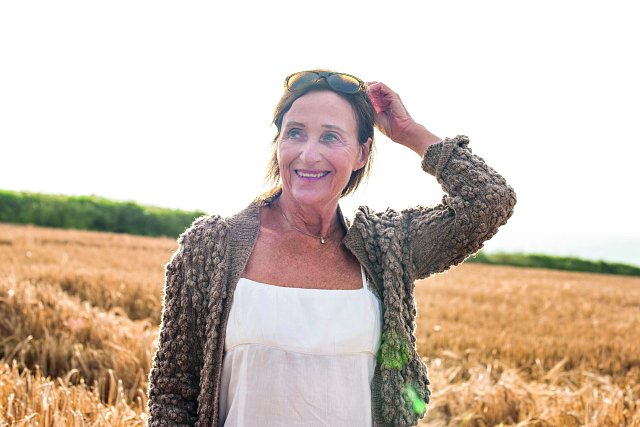
Jill Stein OBE
Co-owner and interior designer, Rick Stein Restaurants
Business profile: In 1975, Jill co-founded The Seafood Restaurant on the quay in Padstow with her husband, Rick Stein. She has remained a pivotal part of the success and growth of the restaurant portfolio ever since. She has received many awards over the years, including an OBE for services to the restaurant industry and being named chair of Visit Cornwall in 2019.
DO: How does your business embrace and promote female empowerment?
Jill Stein (JS): Creating an environment where women succeed is really important to me. We’re always looking to ensure we’re offering equal opportunities and that our hiring processes are gender-neutral and include transparent growth pathways. It’s a key part of our business, and 55% of our leadership team is currently made up of brilliant women, with roles across finance, operations, marketing departments and more. For us, it’s always been a priority to have strong visible role models who are very active in the business.
DO: What strategies or mindset shifts have you found most effective in overcoming biases as a female leader in hospitality?
JS: Well, it’s slightly different for me as, when Rick and I started out we were self-employed, I always had an equal lead in the company. It became more of a personal challenge when people’s perceptions of me seemed to change when Rick got on TV. It was interesting, as people (women in particular) would push me out of the way and say: ‘Oh, you are just his wife,’ – this even happened at a parent-teacher meeting. But I’m a very determined person and I just kept working and growing. Even when I was awarded my OBE, someone said: ‘What, you?’ I’ve always had to overcome such opinions.
DO: How can the industry address cultural issues that contribute to gender inequality?
JS: It’s about providing equal opportunities from education through to career development, especially when it comes to supporting women in traditionally male-dominated environments. Also, the gender gap isn’t just a matter of inequality; it’s a matter of missed opportunity. Every business needs a mix – you can’t have all of one and none of the other; you need those diverse ways of thinking, along with varied life experiences and opinions in order to grow. We’re different (men and women) but it’s so important to come together in life and in business to share ways of thinking and working.
DO: What are your hopes for the future of gender diversity in hospitality?
JS: For me, it’s really a hope that we move beyond the idea of gender diversity and consider diversity of thought instead. That would require gender diversity to simply become the norm.
During my early career, I had to juggle running a company alongside being a mother, so I understand how difficult it is for our staff who have children. I think, where possible, having something like a nursery for staff not just in hospitality but in any big company setting would be a brilliant help.
DO: What does International Women’s Day mean to you?
JS: It’s a day of unity with women around the world, to celebrate and support each other. There’s a real lack of acknowledgement across all societies for the impact women have made in all aspects of business and life, so it’s important we take the opportunity to make noise about those achievements, which shouldn’t go unseen.
DO: What women inspire you and why?
JS: So many women inspire me – especially those who have shown real determination to create something for themselves and survived those more male-dominated spaces.
Angela Hartnett is a real hero of mine. She’s brilliant – equal to any male chef – a wonderfully successful businesswoman and has been through some of the toughest kitchens to create her own.
There’s also Sarah Allen, who’s so hardworking and runs an amazing pub, called the St Kew Inn (near Wadebridge), on her own.


